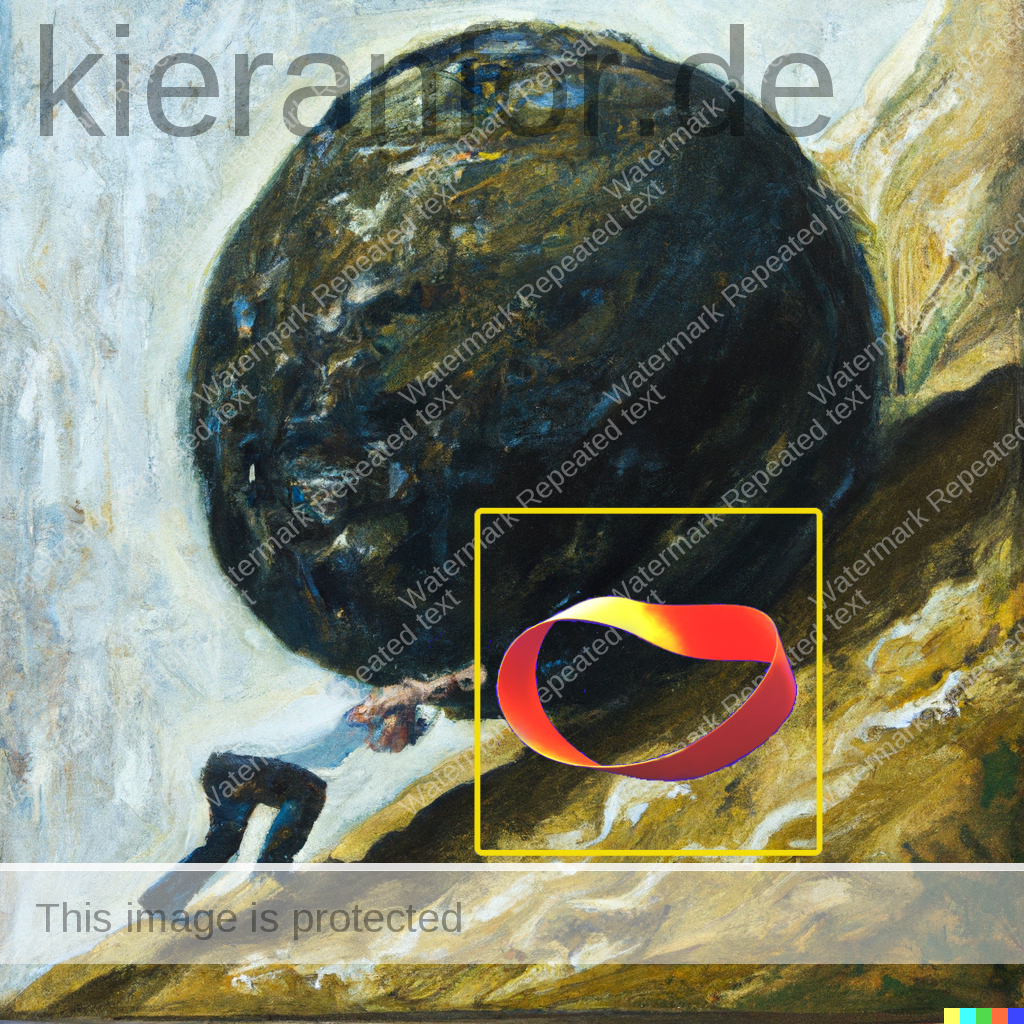Header image: KF in Dall-E
- Beckett, on why he started writing in French: “In order to impoverish myself even further”
- Logic: Premise – inference – conclusion
- Plato: chariot, horses, charioteer
- Ship of Theseus
The nature of the self (12:00)
- Lockean: self = consciousness – memory (absent memory, the self doesn’t exist [Alzheimer’s]
- Narrative: self = (socio-auto-)biographical
- Either or both…but both involve information management
- Self=information
- Foucault; digital technologies are egopoietic (See The Ethics of Information) – to build/construct/modify the self; self-making technologies
╬
16:30: Wilde” one who could play gracefully with ideas but had arrived at violence of opinion merely—
18:00
Memory: ~ the more you engage with social media (the more you write your own profile) the more constrained [written upon] you become – the fixed self
- Problem: More memory = less self-dimensions
- KF; taking a public position on sth constrains us in small ways as these positions are remembered, at least by the platforms
- Twain ~ An honest man doesn’t have to remember what he says
- KF; taking a public position on sth constrains us in small ways as these positions are remembered, at least by the platforms
- Potential solution: new or refined autobiographical skills; capturing; editing; saving; conserving; curating one’s own memories for personal and public consumption
- RTBF: closure = remembering without recalling (not forgetting, but not reopening the wound)

(21:20) The digital gaze: Lacan, Foucault, Sartre, Feminist theory (male gaze)
- The self observes “the observation of itself” by other selves (including, or primarily itself) through some medium.
- The digital gaze is re-ontologizing the self (changes the very nature of the self that it is subjected to)
- 26:30 – the experience of the digital gaze may start from a healthy and willful exposure/exploration by the self of itself through a medium, but social pressure may force it on selves that are then negatively affected by it, leading them to re-ontologize themselves heteronomously
Anagnorisis: the point in the plot especially of a tragedy at which the protagonist recognizes his or her or some other character’s true identity or discovers the true nature of his or her own situation
Self-poiesis:
today means tinkering digitally with the self with unknown and unassessed risks and benefits

